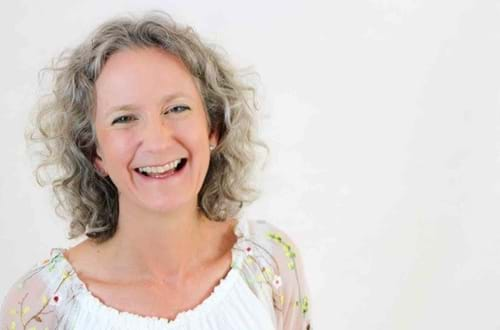Find out more How can Mindfulness enhance Self-Care?
Ahead of her session within out Leading Through The Revival session, mindfulness expert Katie Sheen shares how mindfulness can enhance self-care and why it's so important to take time out during a time of crisis.

Mindfulness is not about escaping, it is about engaging positively with the world.
To have the confidence to stop running through life, to know how to come back to yourself and re-set your nervous system to a baseline from where you can see things more clearly, think more creatively and act more effectively is a self-care skill for the whole of life, both personal and professional.
The pandemic has obviously caused a huge stress response globally, and as our survival reactions of freeze, fight, flee or deny move into overdrive it becomes increasingly difficult to move out of instinctive reacting and into calm, considered responding. One way that mindfulness can liberate you from situations where your thinking becomes too fast or too slow is by teaching you how to move out of your mind and into your body, which is where thinking begins.
Vipassana (Insight) meditation draws attention to four stages of reaction whenever you experience something new and potentially challenging:
- The immediate response is at the physical level: maybe a surge of adrenalin that your mind immediately labels as pleasant (excitement), unpleasant (fear/anxiety) or neutral (too fleeting/subtle to be significant)
- This physical sensation and the label your mind immediately gives it causes a feeling that is potentially short-lived: for example, a flash of anxiety
- The mind can easily attach itself to this feeling, developing it into a mood or emotional state so that the flash of anxiety becomes “I am anxious”
- This mood state colours your thoughts, your behaviour and your view of the world: so your mind starts to seek out things to support the anxiety-induced view that the world is a scary / difficult place, resulting in you feeling more and more anxious.
Mindful awareness enables you to “Mind the Gap” between each of these four stages, interrupting the train of thoughts and reactions that can stoke the fires of anxiety, anger and other potentially destructive emotions.
Mindful breathing becomes incredibly effective at building up a sense of safety and security deep in the centre of your body that you can tap into at any time, enabling you to walk steadily through the eye of a storm of situations and emotions. The calm, focused awareness that accompanies this sense of inner strength helps you to assess things more objectively as they happen, responding with clarity and creativity in order to take effective action that can transform a situation.
Imagine the kind of leader who walks, stands, smiles, listens and talks to you with a calm inner confidence and an open, compassionate attitude from a peaceful core of inner strength. This is what a mindful leader looks like. Mindful self-care begins with yourself, but is ultimately for the benefit of everyone around you and is a very un-selfish act.
Once you have learned how to take care of yourself, then you can turn outwards again. As your personal sense of security increases, it becomes easier to be more outward looking, more inclusive, and more able to take your team forward with you as one.
To discover more, join us at 11am on Thursday 8 October for Leading Well: Mindful Self-Care for Leaders or contact Katie Sheen, Mindfulness Teacher and Speaker, on 07703 342 781 / katie@soulnutrition.org / www.soulnutrition.org
